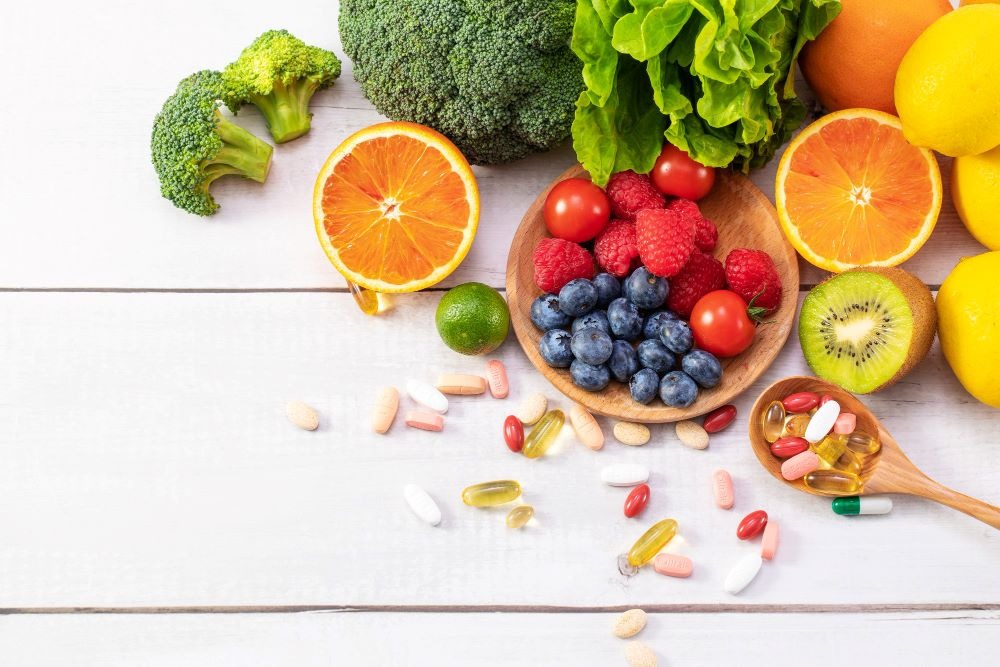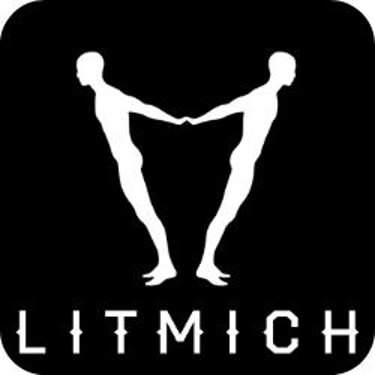lIFE IS TOUGH MAKE IT CHILLABLE!
How Vitamins and Minerals Support Your Body
How Vitamins and Minerals Support Your Body. Vitamins and minerals may be small, but they're mighty. They support everything from your heartbeat to your brain function, working silently in every cell of your body to keep your life running smoothly.
NUTRITION & HEALTHHEALTH & WELLNESSEVERYDAY LIFE
K.N.
9/14/20253 min read


What Are Vitamins and Minerals?
When you think about “vitamins and minerals,” you might picture a bottle of vitamins on a shelf. But these tiny nutrients are more than just pills or gummies. They are the important helpers that keep your body working well every day. Whether it’s boosting our immune system, maintaining healthy bones, or producing energy from the food we consume, these nutrients are like tiny superheroes working behind the scenes.
Think of your body like a car. Food is the fuel, but vitamins and minerals are the engine oil, spark plugs, and small parts that help the car run smoothly. Without them, things don’t work as well and can break down quickly.
The Role of Vitamins in Body Functions
Vitamins are natural nutrients from living things. Your body can’t make enough of them, so you need to get them from food. Each vitamin has its own job to do in your body.
Vitamin A: Keeps your vision sharp (especially at night) and your skin looking healthy.
Vitamin C: Helps heal cuts, keeps your immune system on its toes, and even supports healthy gums.
Vitamin D: Works with calcium to keep your bones strong and helps regulate your mood too.
Vitamin B group: Like the “energy crew”—they help convert the food you eat into usable energy.
Vitamins can be categorized into two groups: water-soluble and fat-soluble.
Water-soluble vitamins (C and B) dissolve in water and must be replaced often because the body doesn’t store them. If you take too many, your body gets rid of the extra.They help give us energy, boost the immune system, and help make red blood cells.
Fat-soluble vitamins (A, D, E, and K) are stored in the body's fat tissues and liver. They are used when the body needs them. These vitamins help keep skin healthy, improve vision, and build strong bones. So, eating a balanced diet with fruits, vegetables, whole grains, and healthy fats can give your body the vitamins it needs.
Minerals: The Power Players
Minerals come from the earth and aren’t alive. They’re found in things like rocks, soil, and water. But don’t worry—your body needs minerals just as much as vitamins. Minerals, like vitamins, are very important for different parts of the body.
Calcium: Not just for bones and teeth—your muscles and nerves need it too.
Potassium: helps control blood pressure and how the body manages fluids.
Magnesium: Helps with muscle function, relaxation, and energy production.
Zinc: Boosts your immune system and helps wounds heal.
Iron: Transports oxygen throughout your blood. It keeps your energy levels high and supports your metabolism. Without enough, you feel tired and weak
Again, a balanced diet with a mix of leafy greens, nuts, seeds, and lean meats can ensure you’re getting the minerals needed to keep your body running smoothly.
Why You Can’t Skip Them
The tricky part is your body doesn’t save every nutrient. That’s why you should eat many different foods—fruits, vegetables, whole grains, and lean proteins. Supplements can help fill gaps, but food brings extra benefits like fiber and antioxidants that pills don’t have."
Power of Teamwork in Action
What’s cool is that these nutrients don’t work alone. They work together, help each other, and sometimes compete to be absorbed. For example, too much zinc can block copper absorption, and vitamin C can help iron absorption, while calcium might slow it down.
That’s why eating real foods is usually better than taking supplements. When you eat an orange, you’re not just getting Vitamin C—you’re getting a group of nutrients that all help each other.
How to Make Sure You’re Getting Your Daily Vitamin and Mineral
To keep your body functioning at its best, it's essential to ensure you're getting enough vitamins and minerals. Here are a few easy tips:
Eat the Rainbow: Eat many different colorful fruits and vegetables. Each color usually means different nutrients that are important for your health.
Focus on Whole Foods: Whole grains, lean proteins, beans, and dairy have important vitamins and minerals. These foods are usually more nutritious than processed foods.
Consider Supplements If Needed: If you find it difficult to get enough nutrients from your diet alone, consider vitamin and mineral supplements. However, it’s best to consult with a healthcare provider before starting any supplement plan.
The Bottom Line
Your body is very advanced, but it cannot make most vitamins and minerals by itself. It needs you to get these important building blocks from the foods you eat. Supplements can help, but the best way is to eat a varied, colorful diet with fruits, vegetables, whole grains, lean proteins, and healthy fats.
Eating healthy and knowing why a balanced diet matters can keep your body strong. Remember, your health is an investment, not an expense!
Thanks for reading
Subscribe, read new articles and support our work along the way.
Similar Posts
Life Is Tough Make It Chillable!
LITMICH © 2025. All rights reserved.


